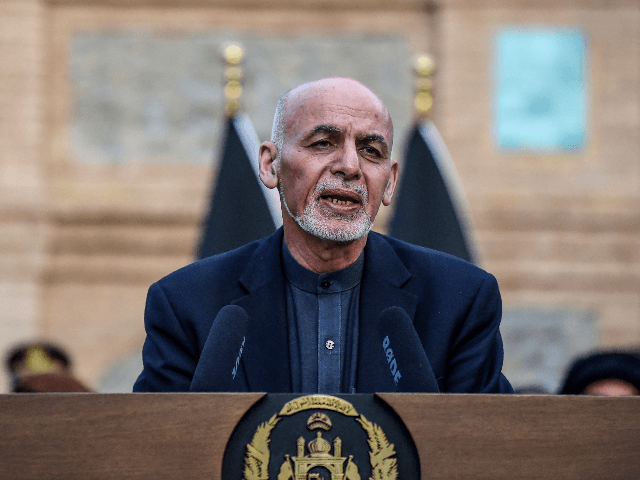Taliban spokesman Suhail Shaheen said on Friday there will be no peace in Afghanistan until President Ashraf Ghani leaves power and a new national government acceptable to the Taliban is installed in Kabul.
“I want to make it clear that we do not believe in the monopoly of power because any governments who (sought) to monopolize power in Afghanistan in the past, were not successful governments. So we do not want to repeat that same formula,” Shaheen told the Associated Press.
The AP suggested Shaheen meant to include the Taliban’s own five-year reign of terror in that assessment of failed “monopoly of power” governments, even though the Taliban has not demonstrated much capacity for introspection during its murderous and tyrannical existence.
Shaheen firmly insisted Ghani — whom he derided as a “warmonger” who lacks proper respect for Islamic tradition because he used a speech on Tuesday’s Eid al-Adha holiday to “promise an offensive against the Taliban” — must go before the Taliban would be willing to seek a political solution to the conflict in Afghanistan.
“Shaheen dismissed Ghani’s right to govern, resurrecting allegations of widespread fraud that surrounded Ghani’s 2019 election win. After that vote, both Ghani and his rival Abdullah Abdullah declared themselves president. After a compromise deal, Abdullah is now No. 2 in the government and heads the reconciliation council,” the AP reported.
Ghani gave his Tuesday address to the nation right after a swarm of rockets landed near his presidential palace.
“The Taliban made clear many things. Abdullah told me some minutes ago that there is no will for peace in the Taliban. We sent the delegation to do the ultimatum and to show that we have the will for peace, and we are ready to sacrifice for it, but they have no will for peace and we should make decisions based on this,” Ghani said, referring to the above-mentioned number two man in Afghan government, who had just returned from talks with the Taliban in Qatar when rockets struck the presidential palace.
“They don’t want reconciliation, but they want surrendering,” Shaheen responded Friday. He insisted that video-documented reports of Taliban brutality in captured districts, including the abuse of women and summary execution of prisoners, were aberrations for which Taliban commanders have been punished by the leadership. He could not name any such reprimanded commander or describe how he was punished.
Shaheen noted the Taliban has been able to conquer many districts without fighting, as Afghan defense forces fled or surrendered without firing a shot, and insisted this proves the people of Afghanistan desire the return of Taliban rule. He hinted that the Taliban has been “restrained” so far but could unleash its full fury if Ghani’s government pushes it too hard.
Shaheen claimed Taliban forces are stronger than ever because they have captured a great deal of equipment from the Afghan military. The U.S. launched airstrikes this week to destroy some of that equipment, and the “enemy personnel” using it, according to Pentagon officials.
Shaheen concluded the interview by insisting the Afghan people, including those who worked for the U.S. military during its twenty-year mission, and foreign journalists have nothing to fear from Taliban rule.
“You know, no one wants a civil war, including me,” the Taliban spokesman said.
The Taliban has, in fact, threatened foreign journalists with violent “consequences” if they give what the extremist organization considers “one-sided news in support of Afghanistan’s intelligence.”
The United States and United Kingdom condemned “the Taliban’s attempts to silence journalists,” while human rights groups noted that at least 15 reporters were killed in Afghanistan last year. Some of the killings were claimed by the Taliban’s rivals in the Islamic State, while others were never investigated or attributed.
As for Afghan employees of the U.S. military, some of them have been murdered by the Taliban already and others have received death threats. Pentagon officials said this week that thousands of Afghan interpreters and translators will be evacuated to bases in the U.S. and Qatar to protect them from Taliban reprisals.

COMMENTS
Please let us know if you're having issues with commenting.